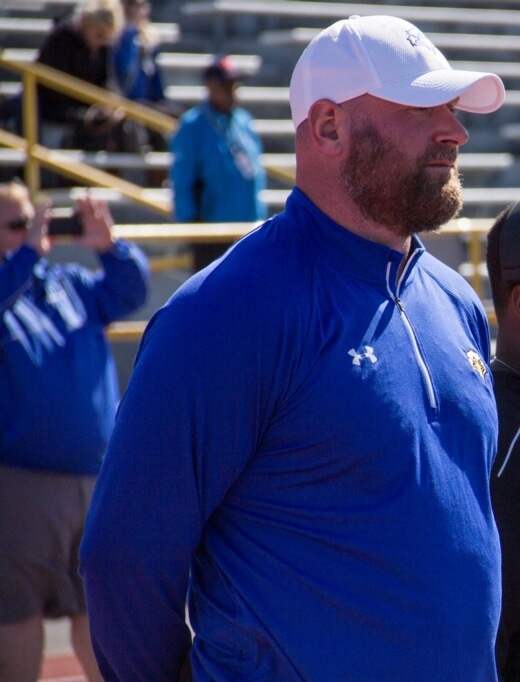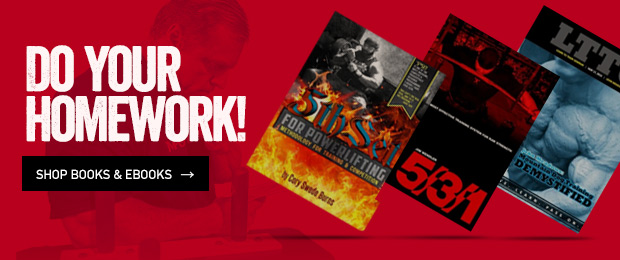
It's that time of year when I get students coming in to see if they can do an internship. These kids aren't going to be strength coaches. They all think they can come in and get a free grade, work on their own schedule and basically be useless millenials. I fire a lot of interns.
But this isn't for those kind of interns/GA's etc... This is for guys and girls that WANT to be strength coaches.
1. Learn your craft
As young coaches you don't really know anything. You certainly don't know as much as you think you know. You still think sets and reps matter. At this point, you need to think that, in my opinion. You need to learn about programming. You need to understand percentages, undulating waves, volume phases, strength phases, in-season v. off-season training etc...
2. Learn to over coach so you can learn to shut up when you're not needed
I find with young coaches that they do one of two things: over coach because they think they know everything or under coach because they don't know much.
I think it's important to over coach at first so you can figure out when to stay out of the way. I've heard coaches say that you should be coaching at all times. I disagree. I think you should be watching and observing at all times. However, if things are going really well I think coaches should shut up and stay out of the way. As important as we want to think we are, the kids will be just fine without us. And, if you do a great job of explaining expectations early in training cycles there's not much reason to open your mouth all the time other than to satisfy some ego trip that makes you feel important.
For young coaches I do believe that over coaching will help teach you how to explain things. This goes back to learning your craft. "The book" tells you how to teach a Squat or whatever exercise. You need to know that. Real life will show you that the book's explanation isn't always the best explanation. My goal is to over-simplify everything. All I want is to get the kids doing things correctly.
Once you understand how to teach the lift then I believe you should find 2-3 alternate ways to teach it. If attempt one doesn't work you can't just repeat what you just said. They didn't get it the first time. Try a different explanation. If that doesn't work, have a third... If they can't get the movement, which happens more often than I would've expected you need to have a regression.
For instance, I always start with teaching the Squat. If they can't get it right after a few attempts or they have some glaring deficiency I have them go to the DB Squat. I have a progression/goal to reach with the DB Squat before they can get back under the bar. This seems to work well.
Back to the topic of this bit: over coaching. I think this will help you improve on explaining things and it should force you to really learn the movements. After all, it doesn't matter how much you know. It's matters how well you can explain it to them.
So, over coach. Eventually you figure out as you look around the room and see a team performing movements correctly (not perfectly). When you can watch a team train themselves and all you really have to do is sit back and enjoy it, you've done a great job of coaching.
Another point that my new GA brought up to me was that if you give 100% to the first group and you have 5 groups in a row without a break, your output is minimal, at best with that fifth group. So, shoot for average. If you can consistently give 70% to all 5 groups you've done a better job coaching than blowing your load with the first two groups and giving less and less as the morning rolls on.
I feel like I'm getting off on a tangent a bit, but it goes back to my point of if you teach them well in the beginning you won't have to give them 100% all the time. This goes back to learning your craft.
3. Understand areas that intersect with your craft
I'm a strength coach. I'm not a rehab specialist. I'm not a powerlifter, a bodybuilder, a sprint coach... But, I need to know a little bit about all of this stuff and more.
Once you've learned your craft you need to branch out. Read about rehab. Talk to athletic trainers, PT's... understand where they come from. Figure out how you can incorporate it into you training program. Learn about powerlifting. Those dudes know how to get strong and they know about technique in the Big 3. Talk to Olympic lifters (if possible) or at least watch some YouTube videos of Olympic lifters/coaches so you can get an understanding of the lifts you'll incorporate. Learn about bodybuilding. Those guys know how to build muscle. Read stuff by sprint coaches. Talk to teachers about how to lead a classroom. Read about the male mind v. the female mind and learn how to communicate properly (psychology and sociology). Have a vested interest in all areas that may touch your craft. One you do you'll realize very quickly that sets and reps don't mean much.
In summary:
- Learn your craft
- Over coach so you can eventually stay out of the way
- Branch out and learn about other areas that will influence your craft
You can't be an expert in everything, but you can have a working knowledge of a lot of things. I'm not an expert sprint coach, powerlifter, teacher, rehab specialist... but most athletes don't need anything fancy. They need basics. And the ones that do need fancy aren't working with us.










I know more than I say,
I think more than I speak,
I notice more than you realize.